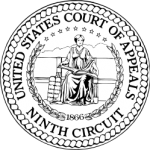From California to Belarus Because of an Ambiguous Arbitration Clause
 The importance of careful drafting of arbitration agreements is often underestimated in countries of the former Soviet Union. A recent case from a United States Court of Appeals illustrates this well.
The importance of careful drafting of arbitration agreements is often underestimated in countries of the former Soviet Union. A recent case from a United States Court of Appeals illustrates this well.
In September 2011, the United States Court of Appeals for the Ninth Circuit considered an ambiguous dispute resolution clause which required settlement of disputes “by means of arbitration at the defendant’s side”.* In English, this phrasing is very hard to understand. Moreover, the clause provided neither for an arbitral institution or rules nor for applicable law.
After initially being confirmed by the District Court, the Ninth Circuit nonetheless refused to enforce a New York Convention arbitration award rendered by a California arbitral tribunal based on this ambiguous arbitral provision and concluded that the parties were supposed to resolve some of their disagreements in Belarus.
Polimaster Ltd., a company based in Belarus entered into a Licence Agreement related to Polimaster-developed radiation detection devices with a US company. Subsequently, disputes arose in the course of performing of that agreement.
online pharmacy https://www.childhealthonline.org/scripts/js/orlistat.html no prescription drugstore
One of those disputes involved RAE Systems Inc., a Delaware corporation with its principal place of business in California.
The License Agreement with RAE Systems Inc. contained the following unusual dispute resolution clause:
9.1 In case of the dispute between the Licensor and the Licensee on the issues provided for by the present Agreement the Parties shall take every effort for their settlement by negotiations.
9.2 In case of failure to settle the mentioned disputes by means of negotiations they should be settled by means of arbitration at the defendant’s side.
In a split decision of the Ninth Circuit, the primary point of contention was the interpretation of the word “defendant” in the parties’ agreement. RAE maintained that the word “defendant” referred to the initial respondent, the party against which the initial claim was brought. Consequently, any subsequent counterclaim could be brought in the same arbitration proceeding, even though that proceeding was not occurring at the counter-respondent’s situs.
online pharmacy https://www.childhealthonline.org/scripts/js/cytotec.html no prescription drugstore
By contrast, Polimaster argued that both the initial respondent and the counter-respondent were “defendant[s]” within the meaning of the contractual term. That required the original respondent to initiate and pursue a separate arbitral proceeding at the site of the counter-respondent in order to pursue a counterclaim.
The majority decided that they should strictly follow the language of the arbitration clause without considering the obvious inefficiencies of splitting a dispute between proceedings both in Belarus and in California. Judge Clifford Wallace, writing for the majority, concluded that:
In sum, although we recognize that parties often choose arbitration for sake of efficiency, we cannot impute such a motivation to the parties here, and we cannot and the arbitrator cannot rewrite the forum selection clause to suit a personal view of the virtue of efficiency. … We hold that Polimaster has established a defense under the New York Convention. Under the New York Convention, we may refuse enforcement of an award if it is the result of procedures that are contrary to the parties’ agreement.
Judge Richard Clifton dissented.
online pharmacy https://www.childhealthonline.org/scripts/js/diflucan.html no prescription drugstore
In his opinion, considerations of efficiency in having both claims and counterclaims heard in the same set of proceedings was paramount:
Considering the context in which the parties made their agreement does not improperly assume any conclusion or wrongly impute any particular motivation to the parties. … [T]he majority’s interpretation ignores both the common desire for efficiency and the widespread procedural practice of litigating counterclaims in the same proceeding. Given this context, it is not so clear to me, let alone unambiguously clear from the words of the arbitration clause, that the parties agreed to require piecemeal litigation.
This case demonstrates the importance of using clear language in arbitration clauses. Had the parties used a model arbitration clause of a reputable arbitration institution, they would have avoided inefficient partial arbitration of disputes, coupled with the increased cost of subsequent litigation in California and unfinished resolution of counterclaims in Belarus.
Yaraslau Kryvoi
* Polimaster Ltd. v. RAE Systems, Inc., 2010 U.S. App. LEXIS 19990 (9th Cir. Sept. 28, 2010).











